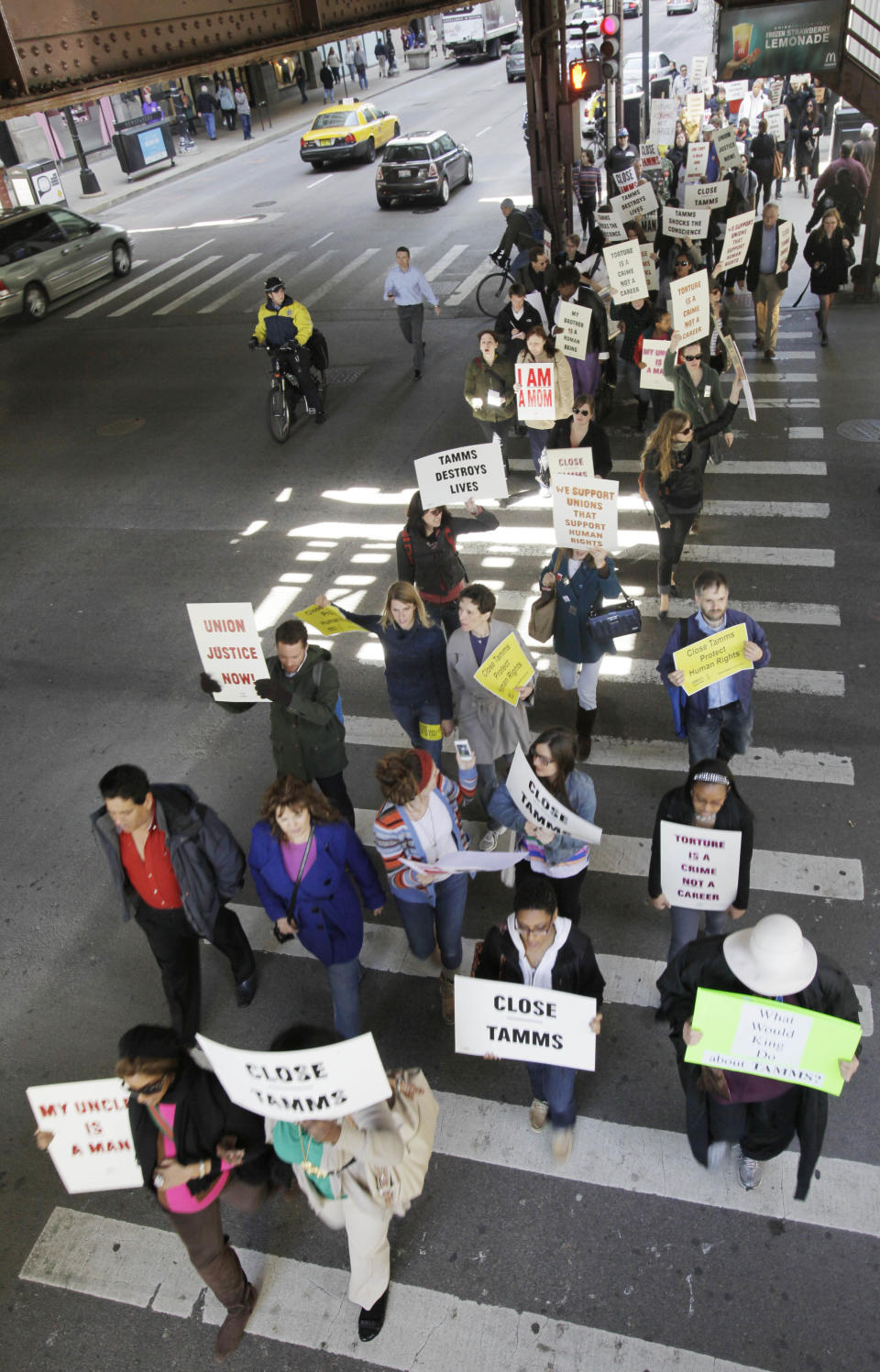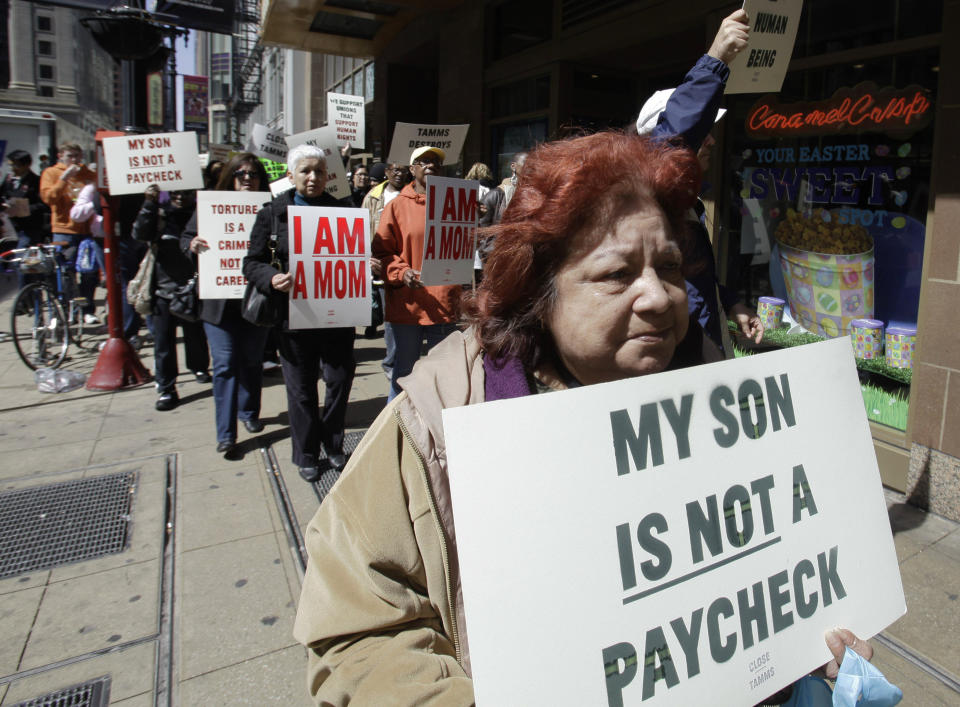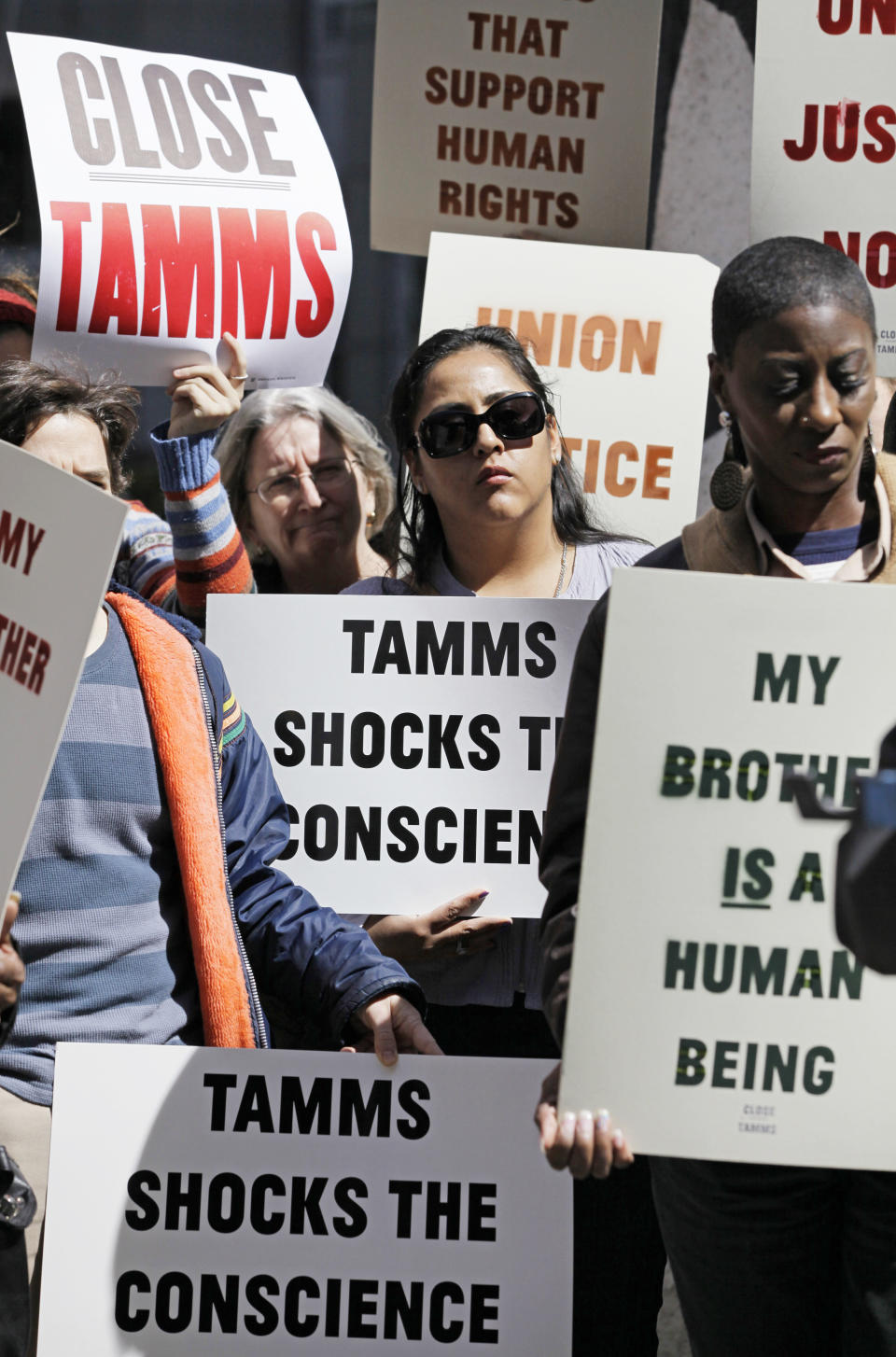Moms support closure of Illinois supermax prison
CHICAGO (AP) — Relatives of inmates at Illinois' only supermax prison marched through Chicago Wednesday in support of Gov. Pat Quinn's proposal to close the facility, saying the round-the-clock solitary confinement their loved ones are subjected to amounts to inhumane treatment.
Facing enormous budget pain in Illinois, Quinn has proposed shutting the Tamms Correctional Center, which opened in 1998, and 13 other state facilities to save money. That has triggered opposition from a union representing local government employees upset over the jobs that will be lost at the facility, located in a far southern corner of the state particularly hard-hit by unemployment and other economic woes.
"They are slowly destroying my son with isolation and the state is going broke in the process," said Grace Warren, whose son has been in Tamms for six years of his life sentence on a murder conviction.
Tamms houses inmates sent from other prisons for infractions against guards or other prison staff, though many of those at Wednesday's protest said no reasons were given for transferring their relatives.
Human rights advocates have long criticized the prison as inhumane, particularly over the 24-hour isolation of prisoners, some who have been there since it was built 14 years ago. Amnesty International says it has also failed to treat inmates with mental illnesses that are often the result of their solitary confinement.
Tamms currently holds 184 prisoners. They sit in isolation in 7-by-12 foot cells for at least 23 hours a day. Some have access to TV and some get out for an hour of exercise alone in an area so small that some claim they can't even extend both arms without touching the walls. Visits are conducted behind thick glass walls with no physical contact allowed.
Meals are shoved through a hole in steel cell doors. Some prisoners say they are subjected to sleep deprivation with guards banging on doors in the middle of the night.
"It's a tomb," said Brian Nelson, a former prisoner who was among about 50 demonstrators taking part in the march. He was convicted of murder in 1982 and transferred to Tamms a week after it opened, remaining there for 12 years.
The worst part, he said, was enduring the isolation, which he said drove him to try to kill himself twice. He came so close to hanging himself that he was found in his cell with rope burns around his neck, he said.
"Sitting in a gray box all day, you just give up," he said.
The American Federation of State, County and Municipal Employees is fighting the Tamms closure. Its director, Henry Bayer, said the facility isolates predatory inmates, making other state prisons safer.
"Inmates are transferred to Tamms as a result of their own actions — brutal violence, including murder, rape and other crimes against other inmates and employees of the prison system," Bayer said.
An economic impact statement said closing Tamms would mean 295 state employee layoffs — and a ripple effect of 43 other jobs lost in the community.
The demonstrators marched to the union's headquarters on Chicago's Michigan Avenue, shouting, "No more torture. No more cages."
They said they sympathized with the southern community's economic plight but that the issue was about human rights and dignity, not jobs.
"A job in which you are essentially torturing people is not a job worth keeping," said Stephen Eisenman, one of the organizers and a professor at Northwestern University.
Warren, who last visited her son in March, said it is hard to cope with the knowledge that his isolation might be causing him more distress than he lets on when they meet. He sits on the other side of a glass wall wearing a beige jumpsuit, his hands, feet and waist shackled.
"You can look him in the face and tell something's not right," she said. "He says, 'I'm OK, I'm OK,' but you know your child."



